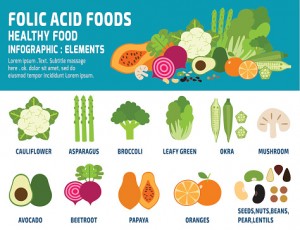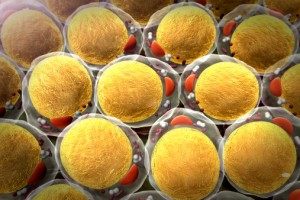National folic acid awareness week 2016: Folic acid deficiency and sources: Are you deficient in this important nutrient?

Folic acid awareness week is a way to bring the issue of folic acid deficiency to light and educate people about good sources of this important vitamin.
The first week of January is National folic acid awareness week in the United States. Research shows that folic acid deficiency may not be common in North America, but there are some people who barely get enough of it. There are also cases where people get too much folic acid and that can be hazardous to health.
What is folic acid
Folic acid is a B vitamin that can be found in all sorts of foods, including dried beans, lentils, green leafy vegetables and whole-wheat products. It helps our body produce and maintain new cells, as well as prevent changes to DNA that could potentially lead to diseases, such as cancer.
According to the British Dietetic Association folic acid helps to produce healthy red blood cells, aids in rapid cell division and growth, and is important for pregnant women in order to prevent major birth defects, such as brain or spinal problems. The association reports that folic acid generally enhances the human brain. In fact, Dutch researchers suggest that folic acid supplementation could improve memory.
Studies show that folic acid is vital to the metabolism of specific biochemical reactions in the human body, as well as for the metabolism of certain drugs. Folic acid deficiency has not only been linked to birth defects but to something called “hyperhomocystinemia”, a condition linked to increased cardiovascular disease.
On the other hand, too much folic acid has the potential to cause neurological damage. Research indicates that this is true for those who are at risk of vitamin B12 deficiency. If you fall into this category, you should be careful about consuming too much folic acid from fortified foods and supplements. High intake of folic acid may mask the diagnosis of vitamin B12 deficiency- thus putting you at risk for neurological problems.
-
Close Kept Secrets To Weight Loss Lesson 39
I trust that you are having amazing success, and Im very proud of your
-
Green tea helps in weight loss
Tea is world’s a lot consumed drink after synonyms. Yes it may b
-
What It Really Takes To Lose Weight
easy weight loss tricks is one of those
-
14 Ways to Cut Portions Without Feeling Hungry
V
-
Ouch! Do Staples In The Ears Really Help You Lose Weight?
Are you looking for a possible technique
-
Procerin FAQs
If you are having trouble with the loss or hair and experiencing baldn
- DON'T MISS
- What are The Best Ways to Get Rid of Fat
- Lose weight in a healthy way
- Dieting Facts and Myths You Need to Know
- MLM Tools and Tactics To Make More Money
- Do Not Use Slimming Product With Undeclared Drug Ingredients
- Lose Belly Fat Diet Plan
- Are You Sabotaging Your Weight Loss Program?
- Why Is It So EASY To GAIN WEIGHT During The HOLIDAYS
- Clownfish Trivia
- What Is In Most Fat Loss 4 Idiots Review Sites?




